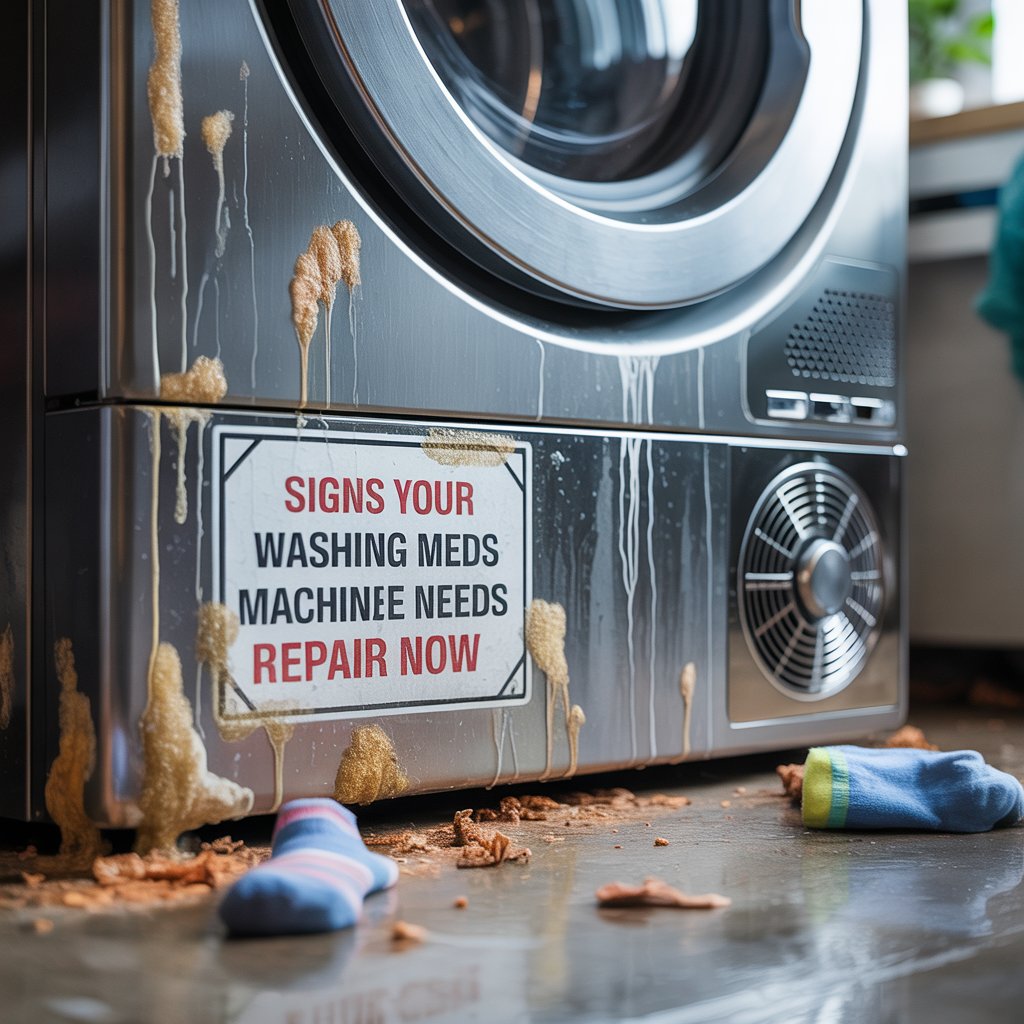Washing machines are among the most used and relied-upon appliances in any home. It handles loads of work with minimal attention, until something starts to feel off, from sweaty gym clothes to everyday laundry. Maybe it’s a strange noise that wasn’t there before, a cycle that takes longer than usual, or your clothes come out dripping wet even after the spin. These issues often creep in slowly, but waiting too long to act can turn a simple fix into a major expense.
Recognizing the early symptoms of a faulty washer can save you time, money, and the frustration of emergency breakdowns. Knowing what to watch for allows you to handle problems before they spiral into costly repairs or replacements. If you’re noticing odd behavior during your laundry routine, it may not be your imagination, it might be your washer trying to signal a cry for help. The earlier you spot the red flags, the easier and cheaper it is to get things back on track.
How to Know Your Washing Machine Needs Immediate Attention
It’s easy to dismiss minor inconveniences during laundry day as one-offs. But recurring problems could be early warnings that your machine is on the verge of failure. Here are four common signs your washer needs professional repair, now, not later.
1. Unusual Noises During the Cycle
Grinding, Banging, or Screeching Sounds
Washing machines are not silent, but they shouldn’t sound like a construction zone. If your unit starts making loud banging, grinding, or screeching noises, it’s a strong indicator that something’s wrong internally.
- Grinding: This often points to a problem with the motor bearings or drive pulley.
- Banging: Could suggest that the drum is off-balance or there are loose components inside.
- Screeching: Typically a sign that a belt is slipping or worn out.
Ignoring these sounds can lead to damage that’s far more costly than a quick washer repair. Early diagnosis can keep the machine running smoothly without risking total failure.
2. Excessive Water Leaks
Water Pooling Around the Base
Water leaking from your washing machine is not only a mess, it’s a hazard. If you spot puddles around your washer, act quickly.
- Damaged Door Seals: Front-load washers often suffer from worn-out rubber seals that lose their grip over time.
- Loose Hoses: Back connections may become loose or cracked, especially after a move or long-term use.
- Internal Drain Issues: If the washer can’t drain properly, it may leak from the bottom.
Continuous leakage can damage your floors and lead to mold growth. A reliable washer repair Concord NC professional can pinpoint the leak’s origin and replace damaged parts before the damage spreads.
3. Cycles Aren’t Completing Properly
Stuck Mid-Cycle or Long Delays
A washer that takes too long to finish or gets stuck during a wash is signaling internal issues that shouldn’t be ignored.
- Electronic Control Problems: Malfunctions in the control board can prevent cycles from progressing as programmed.
- Drainage Issues: If water can’t drain correctly, the cycle stalls or halts completely.
- Sensor Failures: Temperature and water-level sensors failing to detect accurate conditions can prevent the cycle from completing.
If clothes are still soaking wet after a full cycle or the machine doesn’t move past a rinse or spin phase, it’s a clear indicator of trouble. Waiting to fix it can lead to even more significant operational failures.
4. Strange Smells or Mold Growth
Persistent Odors from the Drum
While it’s normal for washers to smell a little damp now and then, a persistent musty or moldy odor should never be ignored.
- Mold Buildup: The drum and detergent drawer are prime spots for mold and mildew growth, especially in humid environments.
- Clogged Filters or Drains: Trapped debris can rot over time and create foul smells.
- Poor Ventilation: Inadequate drying between uses causes lingering moisture, creating the perfect environment for bacteria.
These smells aren’t just unpleasant, they can also transfer to your clothes. If you’re noticing odors despite regular cleaning, it’s time to get a professional involved. A licensed repair technician can clean hard-to-reach areas and replace mold-infested components.
Quick Diagnosis of Washer Problems
| Problem | Likely Cause | Action Needed |
| Loud banging or screeching | Loose drum or worn-out belt | Professional inspection and repair |
| Water leaks around the machine | Broken seal or cracked hose | Seal or hose replacement |
| Washer stalls mid-cycle | Control board or drain issue | Electrical or plumbing repair |
| Moldy smell from the washer | Mold in the drum or a blocked drain | Deep cleaning or part replacement |
When to Call for Professional Washer Repair
Some minor issues can be handled with DIY fixes, like cleaning the filter or tightening a loose hose. But for anything involving internal parts, electrical systems, or persistent issues, calling a technician is the smart move.
- Consistency of the issue: If a problem happens more than once, it’s not a fluke.
- Safety concerns: Water and electrical components don’t mix well; better to let a pro handle it.
- Machine age: Older models often require more attention; sometimes, repairs are more cost-effective than a full replacement.
A trusted service specializing in washer repair Concord NC can assess your machine quickly and advise whether it’s better to repair or replace. Fast action here can prevent longer-term inconvenience and extra costs.
Final Verdict
A washer that shows signs of distress, whether through strange noises, leaks, lingering smells, or incomplete cycles, should never be ignored. These red flags often hint at deeper mechanical issues that won’t go away on their own. Waiting too long can turn an easy fix into an expensive repair or full replacement. Acting quickly helps you maintain your appliance’s efficiency and keeps laundry day stress-free.








